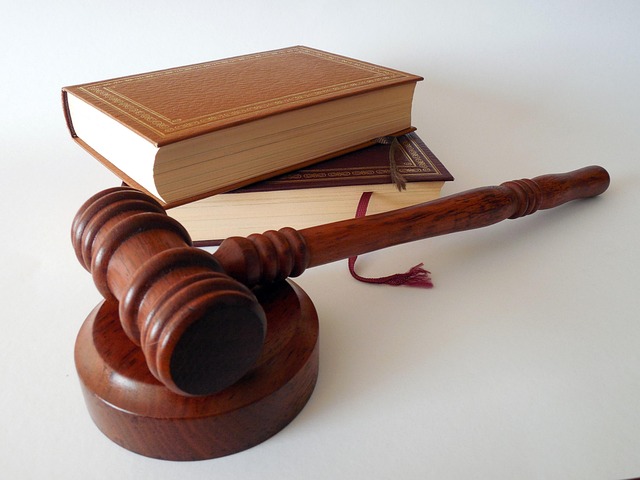Corporate Crime Investigations expose business strategies gaining illicit advantages through financial misdeeds, data manipulation, and regulatory evasion. Understanding common defenses in consumer protection litigation is crucial for both investigators and defendants. Businesses facing allegations must employ robust defensive strategies, such as proving no harm or demonstrating regulatory compliance, to avoid prolonged legal battles, build consumer trust, and shield themselves from white-collar crime accusations. Effective corporate governance, transparent operations, and strategic defenses foster ethical conduct, mitigate risk of litigation, and promote long-term sustainability.
Corporate Crime Investigations delve into complex financial and operational misdeeds within organizations. This article guides you through understanding the intricacies of uncovering common schemes, such as fraud, money laundering, and corruption. We explore robust legal frameworks and regulations designed to protect consumers from corporate misconduct, with a focus on preventing consumer protection litigation. Additionally, discover effective strategies for navigating defenses in consumer cases, empowering businesses to safeguard their reputations against unfair accusations. Learn about common defenses in consumer protection litigation to fortify your business practices.
- Understanding Corporate Crime Investigations: Uncovering Common Schemes and Strategies
- Legal Frameworks and Regulations: A Shield Against Consumer Protection Litigation
- Navigating Defenses: Protecting Businesses from Unfair Accusations in Consumer Cases
Understanding Corporate Crime Investigations: Uncovering Common Schemes and Strategies

Corporate Crime Investigations delve into complex schemes and strategies employed by businesses to gain illicit advantages. By unraveling financial misdeeds, data manipulation, and regulatory evasion, investigators expose misconduct that can have severe economic and societal impacts. Understanding these common tactics is crucial for both investigators and defendants alike. Businesses facing allegations must be aware of the common defenses in consumer protection litigation, aiming to challenge evidence and negate intent.
An unprecedented track record of successful investigations and complete dismissals of all charges demonstrate robust defensive strategies. These cases often navigate all stages of the investigative and enforcement process, from initial complaint to trial or settlement negotiations. Understanding these dynamics is vital for both parties, ensuring fair outcomes and fostering trust in corporate governance practices.
Legal Frameworks and Regulations: A Shield Against Consumer Protection Litigation

Corporate Crime Investigations often center around consumer protection, where legal frameworks and regulations play a pivotal role in safeguarding consumers from unethical business practices. These laws are designed to deter companies from engaging in white-collar and economic crimes by establishing clear guidelines and consequences. By implementing robust internal controls and compliance programs, businesses can significantly reduce the risk of falling into common defenses in consumer protection litigation, such as avoiding indictment for fraudulent activities.
An unprecedented track record of adherence to these regulations not only builds trust with consumers but also acts as a shield against potential legal disputes. Effective corporate governance structures, coupled with transparent business operations, help in maintaining integrity and ensuring compliance. This proactive approach not only mitigates the risk of litigation but also fosters a culture of ethical conduct within the organization, thereby promoting long-term sustainability and success.
Navigating Defenses: Protecting Businesses from Unfair Accusations in Consumer Cases

In the high-stakes world of consumer protection litigation, businesses often face a minefield of accusations, particularly with the rise of aggressive plaintiff’s bar and heightened public scrutiny. Navigating these allegations requires strategic prowess to discern legitimate claims from meritless lawsuits. Understanding common defenses is paramount for companies aiming to protect their reputations and financial stability. The primary goal is not just to win but to avoid the costly and damaging effects of prolonged legal battles, which can erode a company’s resources and credibility.
Many strategies focus on proving that no harm or deception occurred on the part of the business. This involves demonstrating compliance with relevant laws and regulations, showcasing transparent practices, and providing clear evidence of fair dealing. Additionally, companies may assert the absence of reliance by consumers on their marketing or sales materials as a defense, especially when allegations stem from misleading advertisements. While combating these claims, it’s crucial to remember that the specific defenses employed should align with the unique circumstances of each case, taking into account factors such as industry standards, consumer expectations, and the company’s track record in the philanthropic and political communities, thereby avoiding indictment for white-collar and economic crimes.
Corporate crime investigations are a complex landscape, demanding a deep understanding of both legal frameworks and investigative strategies. By recognizing common schemes and navigating defenses effectively, businesses can fortify themselves against consumer protection litigation. Familiarizing yourself with the legal protections available and implementing robust internal controls is essential to mitigate risks and ensure compliance. Ultimately, staying proactive in these areas can save companies from costly legal battles and maintain their reputation in an ever-vigilant market.






